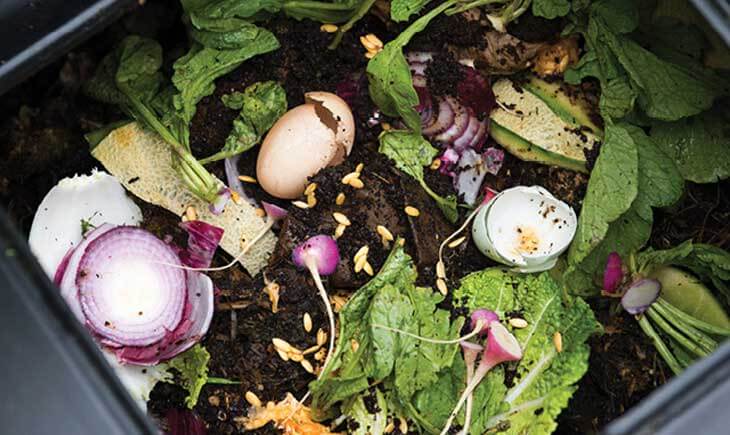
Celebrated during the first full week of May each year, International Compost Awareness Week (ICAW) works to raise public awareness on why it is important to compost organics and to use compost products. Throughout that week, Community, school, government, and business events are held worldwide to encourage and celebrate the benefits of all types of composting—from backyard to large-scale.
When we think of composting, we often associate it with the benefit of reducing waste, but what you may not know is that the process is also beneficial for a number of other reasons. Read on to learn about the many other benefits of composting.
Environmental benefits
It should come as no surprise that the process of composting benefits Mother Earth. It can reduce greenhouse gas emissions, conserve natural resources, and protect biodiversity in nature. Composting can also reduce water pollution by preventing nutrient runoff from soils into surrounding ecosystems. Overall, composting is a valuable resource for communities, businesses, and farms looking to support a more sustainable future.
On a similar note, composting can help mitigate climate change by capturing and storing carbon in the soil. When organic material decomposes in a landfill, it produces methane, a potent greenhouse gas that contributes to global warming. By diverting organic waste to composting facilities, we can reduce methane emissions and promote carbon sequestration.
Additionally, compost helps promote healthier and more vital plant growth, allowing plants to convert more CO2 into leafy growth. While this may seem like a small benefit to an individual project, compost used on a large scale can have a significant impact on our climate.
Economic benefits
Composting can also help create jobs and stimulate local economies by providing opportunities for waste management, compost production, and agricultural services. In addition, businesses and municipalities that reduce their waste disposal costs through composting can save money and reinvest it in other areas.
Soil enrichment
When compost is complete and benefits are seen on the production side, it is then used by residential and commercial customers. Compost is a rich source of organic matter and nutrients that can improve soil structure, water-holding capacity, and fertility. By using compost in agriculture and landscaping, farmers and gardeners can increase crop yields, enhance plant growth, and reduce the need for synthetic fertilizers and pesticides.
Compost provides organic matter to depleted topsoil. Every 1% increase in soil’s organic matter results in as much as 25,000 gallons of available soil water per acre. Amended soils can hold more water, and therefore require less groundwater irrigation for productive plant growth. This high-water holding capacity also allows soils:
- To retain water through periods of drought, reducing periods of water stress.
- To maximize water storage in extreme storm events, reducing stormwater runoff and nutrient leaching.
Composting is a multifaceted solution that addresses not only waste reduction but also environmental protection, economic development, and the betterment of soil. As more communities and businesses adopt composting as a sustainable resource management strategy, we can create a more resilient and thriving future for ourselves and the planet.
Whether you are looking to contribute to composting efforts or utilize compost products in your lawn or garden projects, the SMSC Organics Recycling Facility can serve as a great resource for getting started. Click HERE to learn about items that the facility accepts and the variety of products that are available to the public.


